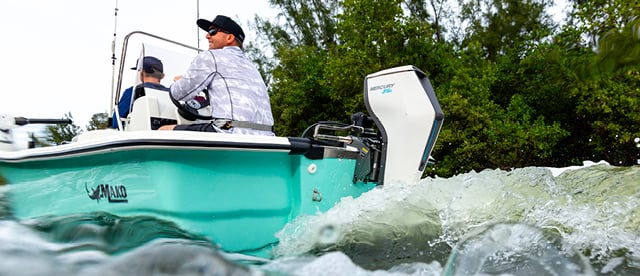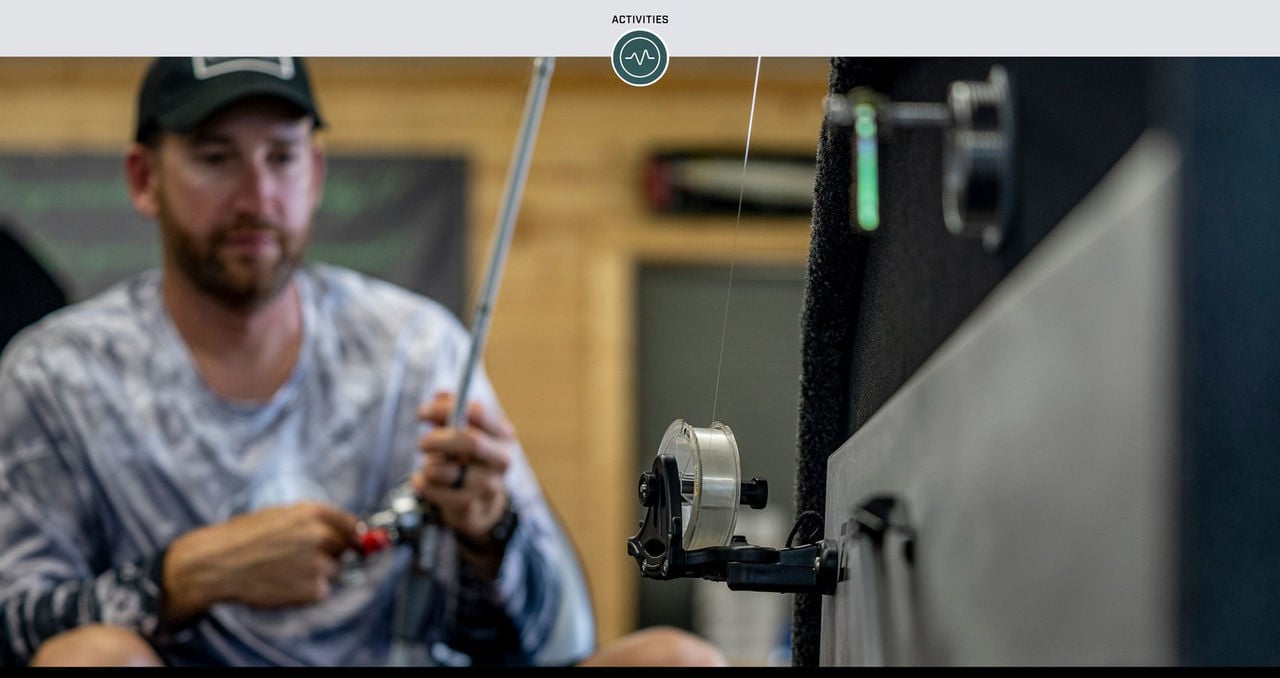While changing out fishing line is not high on the list of things most anglers enjoy about fishing, using good line is an integral part of angling success. The line is, after all, vital to making a proper cast and presentation, as well as landing a fish once it’s hooked.
So how do you know when and how often to change your line? It depends on the line type and the situation. Braided line can last for several seasons. Just check to make sure it’s not excessively frayed or low on the reel. If it is, replace it. If not, tie on a new leader and go fishing.
For monofilament and fluorocarbon, here are some things to consider:
When the Line is Damaged or Abraded
Most times, only the last few feet of line get damaged or abraded while fishing – at most, about a cast’s worth. However, if you get a nasty backlash or tangle your line on something in the boat, you could damage the line deeper into the spool. Also, the more days you use the same line, the more it can wear just from sliding through the rod guides, eventually leading to a break.
Verdict: If the damage is near the lure, cut off the damaged portion and retie. If you think the line is damaged deeper in the spool, don’t chance it. Replace it. Same goes for line that’s been used extensively.
When the Line Has too Much Memory
Monofilament and fluorocarbon lines develop “memory” over time when they’re wound tightly around the reel spool. It causes coils to form in the line that don’t straighten out, which makes casting difficult.
Verdict: Even if the line hasn’t been used much, line memory is a pain. Replace it and be glad you did.
When the Line on the Spool is Low
You never want to overfill a reel, but you don’t want the line getting too low on the spool, either. It makes casting more difficult, plus the line nearer the spool tends to have more memory.
Verdict: If it’s low, replace it.
At the Start of a New Season
If you don’t fish in the winter or take an extended break from fishing, you’ll likely be dealing with line memory when you get back out there. Plus, monofilament and fluorocarbon line can degrade over time, depending how they’re stored.
Verdict: Start a new season with fresh monofilament or fluorocarbon.
Before Competing
Many Mercury Pro Team members on the professional tours will change line every night of a multi-day tournament. That’s a bit excessive – and expensive – for a weekend angler, but from a pro’s perspective, losing even one fish to a weak spot in their line could cost thousands of dollars. For most weekend tournament anglers, a commons sense approach works best.
Verdict: It’s not a bad idea to change your monofilament and fluorocarbon and start fresh before each event, but if you’ve only used the line on an outing or two and it’s not damaged, old or full of coils, you can probably cut off a cast’s length of line to remove any potentially damaged sections and fish with confidence.
When Changing Lakes or Tactics and Targeting Trophy Fish
Some scenarios just call for fresh line. If you’re headed to a trophy lake to target big fish or leaving for a much-awaited buddies’ trip, why not start fresh? Respooling reels is a lot more fun when it’s part of the buildup and anticipation before an important outing. And never slack on using the right line for the lake, tactics or cover you’re fishing. For instance, if you’re heading to a lake with heavy milfoil, you might need to respool with heavier line. Or if you’re going to a lake with much clearer water than normal, you might want to respool with lighter line.
Verdict: You make the call. Just keep in mind new line can improve your confidence and could help you avoid the dreaded heartbreak of a fish that breaks off at the boat.
3 More Helpful Fishing Line Tips
1. Use Backing
Backing is older or cheaper line that gets put on the reel spool before your new line gets added, so you can use less of your good line to fill the spool and save some money. Just make sure you have enough good line to make long casts, plus some extra to account for cutting off and retying lures.
Also, you don’t always have to use line as your backing material.
“I will use electrical tape to fill my spools to the point I only have a little over a cast of line,” said Mercury Pro Team angler Caleb Kuphall, of Mukwonago, Wis. “Fluorocarbon is expensive, and you typically do not need 150 yards of line on your reel if you're only casting 80 feet. For my flipping rods, I'll only put on 50 feet or so of line. That way, I can change it more frequently and not use much line at all.
“For my braid rods, I will use mono as a backer, and it will keep the braid from slipping on the spool. Again, I fill it to the desired depth (with backing) to give me a little over a cast’s worth of braid.”
2. Keep it Out of the Sun
“The biggest key about fishing line is how it is stored,” said Greg Meunier, president of Vicious Fishing, maker of a variety of fishing lines. “The UV in sunlight is really bad for line, especially monofilament. Braid and fluorocarbon are more resistant, but store all line out of the sun whenever possible.”
3. Use Line Conditioner
As mentioned, line memory is a real bear to deal with. According to Meunier, there’s a solution out there that can help alleviate the trouble, though it certainly won’t eliminate it.
“Line conditioner can help with that, as it refreshes the line and improves casting,” he said.
Line conditioner comes in a spray bottle and is applied to dry line once it is on the reel. The benefits of a conditioned line are smoother casts, less memory and longer line life. However, line conditioner will not repair damaged line.
Now Go Fishing
Ultimately, when it comes to your fishing line, there’s a lot … on the line. Use these tips to help preserve and extend the life of your line. Then when it’s time to respool, don’t skimp. Fresh line could be the difference in landing that personal best, or the story of another that got away.




